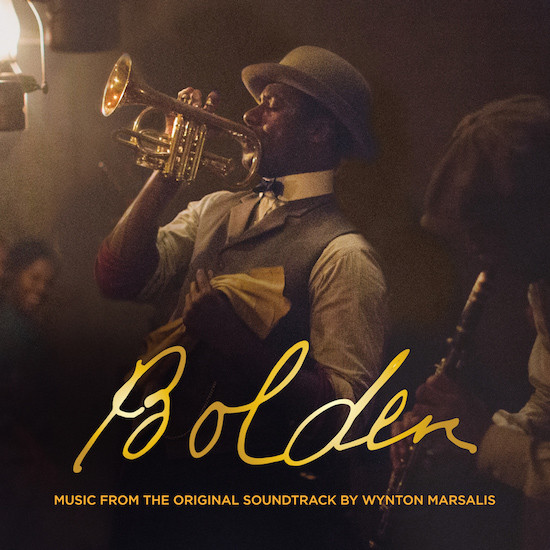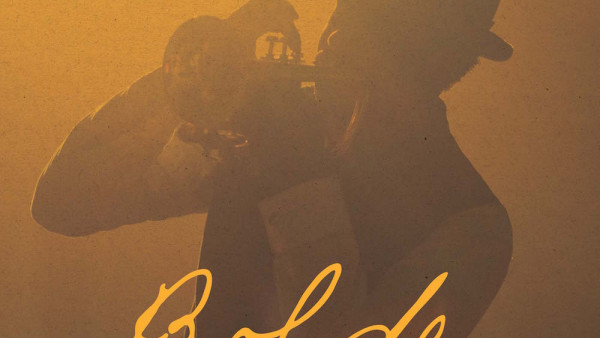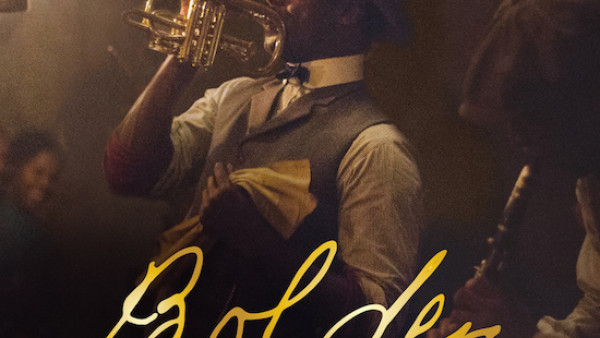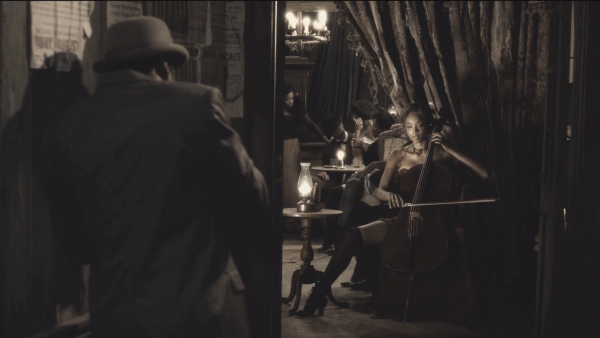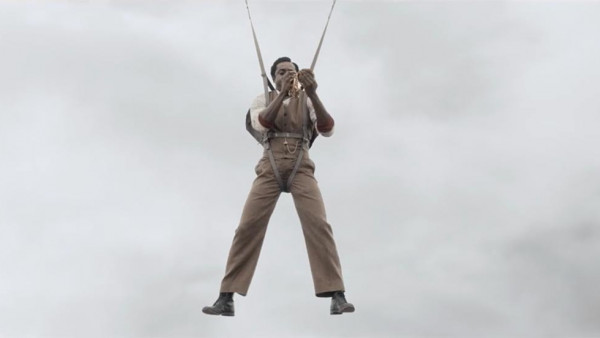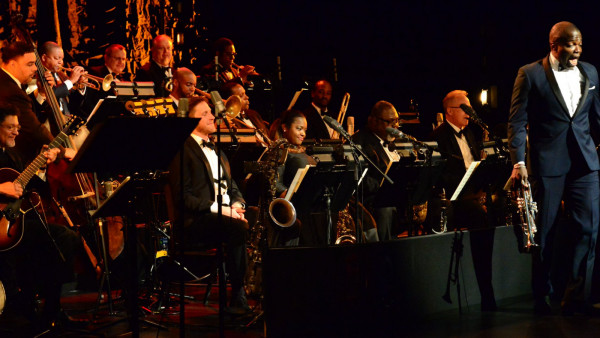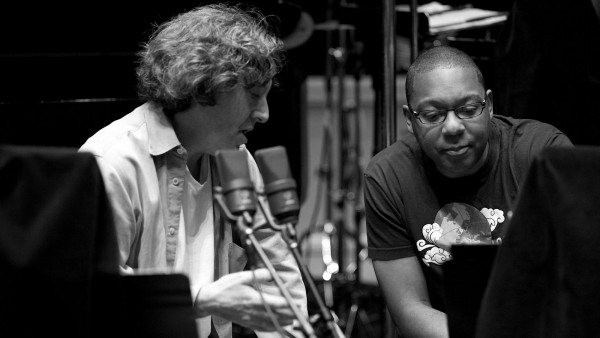JALC Gala Traverses the History of Jazz
Jazz at Lincoln Center felt more like jazz at Preservation Hall during the April 17 JALC concert and gala dinner.
The theme of the annual fundraiser for the New York cultural organization was “The Birth of Jazz: From Bolden to Armstrong” and featured an array of New Orleans’ brightest performers: pianist-singers Harry Connick Jr. and Jon Batiste, pianist Sullivan Fortner, and guitarist/banjoist Don Vappie, complemented by other specialists in early jazz, including singer Catherine Russell. Three outstanding young trumpeters, alumni of JALC’s nationwide big-band competition, Essentially Ellington, also got a chance to show off their skills.
The music might have been vintage, but the prices were not: tables of 12 were going for as much as $200,000 with the money going to support one of the world’s most important promoters of jazz and jazz education.
The concert, hosted by former Crescent City Mayor Mitch Landrieu, included three of the four performing Marsalis brothers: Wynton on cornet and trumpet, older brother Branford on tenor saxophone and Jason, the youngest brother, on drums. A fourth brother, writer and photographer Ellis Marsalis III, showed up, as well, to recite a poem in tribute to his father, pianist and educator Ellis Marsalis Jr., and to accept the Award for Artistic Excellence on behalf of the family patriarch.
Also honored with the organization’s Ed Bradley Award were philanthropists Art and Becky Samberg.
The evening also effectively served as a preview of the new movie Bolden, a fictionalized biography about the legendary inventor of jazz, Buddy Bolden, whose short career around the turn of the 20th century changed the course of America’s cultural and social history. Wynton Marsalis contributed original music to the film that conjures the Bolden band, of which there are no extant recordings.
The affable Landrieu, who served eight years as New Orleans’ mayor, came onstage holding a trumpet and quipped, “I thought that, instead of running for president, I’d audition for the JLCO.” In addition to giving birth to jazz, he said, “New Orleans invented poker and movie theaters. You’re welcome.”
He introduced the orchestra, and Bolden’s “Don’t Go ’way Nobody” followed, featuring Wynton on cornet. Landrieu then brought out Russell, a favorite of JALC audiences, whose newest album, Alone Together, had just finished five weeks atop the jazz radio charts. Her thoughtful, nostalgic rendition of “Basin Street Blues,” Spencer Williams’ 1928 masterpiece, featured Armstrong-inspired soloing by JLCO trumpeter Kenny Rampton. Russell, whose father, Luis Russell was Armstrong’s longtime musical director, scatted the ending in a style that would have made Pops proud.
Joe “King” Oliver’s “Snake Rag” featured two of the young trumpeters, recent Julliard graduate Noah Halpern and fourth-year Julliard student Anthony Hervey, who improvised deftly over the classic chart, punctuated by a shout of “Oh, sweet mama!” by bandmembers. Vince Giordano achieved a hat trick on the Armstrong hit “Mahogany Hall Stomp,” playing successive solos on acoustic bass, bass tuba and bass saxophone with vigorous support from New Orleans banjo virtuoso Vappie, and trumpeter Marcus Printup and trombonist Vincent Gardner.
Landrieu then introduced Batiste, who played a haunting “St. James Infirmary Blues,” a track off his latest disc, Hollywood Africans, inhabiting the lyric with an affecting vocal. He lightened the mood somewhat with his line, “She’s never gonna find another sharp-dressing piano-playing man like me,” earning appreciative laughter.
Connick was next up, complaining, “It’s not fair to have me follow a Julliard piano player.” He then launched into a jaunty, if rather sloppy, barrelhouse piano solo on “Tico Tico.” He did much better with “Stardust,” crooning it movingly and with humility, caressing each lyric. In this he was abetted by eloquent tenor commentary by Branford Marsalis, who took a gorgeously constructed solo with a proper beginning, middle and end.
“Our dad was different,” Branford said, in remarks before a filmed tribute to the senior Marsalis. “Unlike many people today, he had no grievances … . At a certain point when we were in our teens, Wynton and I were making more money playing in a Top 40 band than he was playing jazz. One day, I asked him how he felt about that. He said, ‘This is my choice.’”
Introducing pianist Fortner, Landrieu told how Ellis Marsalis Jr., had discovered him as a 12-year-old piano prodigy, exclaiming, “We got another one!” Now 32, Fortner fronted the JLCO in the lilting theme “Timelessness,” a tune from Wynton’s score for Bolden, a song that sounds like it could have been an early Ellington band composition. At one point, Wynton, wielding a plunger mute, and Branford on soprano saxophone traded fours, creating some musical fireworks, while Fortner’s solo was, characteristically, loose as a goose and tight as a drum.
One of the final student performances was by trumpeter Summer Camargo, currently a senior at the Dillard Center for the Arts in Fort Lauderdale, Florida. Playing Ellington’s “Portrait Of Louis Armstrong” (from New Orleans Suite) with the backing of the JLCO, she impressed with her improvising chops, from lyrical passages to audacious blasts. Her fellow trumpeters, Halpern and Hervey, returned, along with featured clarinetists Dan Block and Victor Goines, to perform “Second Line,” from the same Ellington suite.
As Landrieu commented, referring to the array of young talent, “Turn off your TVs. Now, how does the future look?”
By Allen Morrison
Source: Downbeat

